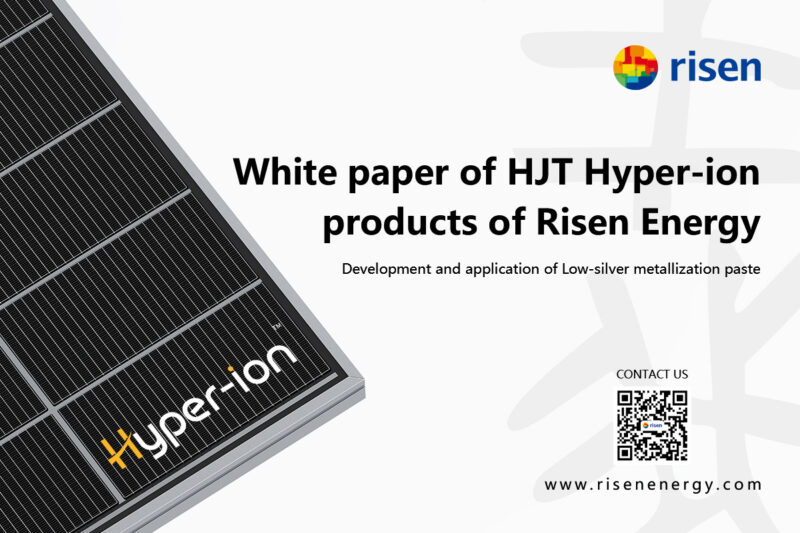Risen Energy White Paper on HJT Hyper-ion Products

HJT Technology
With the increased demand for products with higher power, higher efficiency, higher power generation, higher reliability, lower balance of system (BOS), levelized cost of energy (LCOE) and carbon emissions, the research and development (R&D) of high-performance PV products has become a prominent trend in the industry. Heterojunction technology (HJT) is favored by the industry because it is a single-junction solar cell with the most efficient and highest power generation, and also a favorable base for tandem cells when combined with the perovskite technology. It is one of the longest-researched technologies in the industry with 40 years’ history since its laboratory inception. However, in terms of industrialization, it has been constrained by high costs. Hence, cost reduction is particularly vital for the industrialization of HJT products.
Significant progress in HJT Technology
Risen Energy has been conducting R&D and production of HJT products since 2019, and has achieved significant progress, four times breaking of the world record of module power output. Risen Energy’s HJT products shipments ranked first globally in 2020 and 2021. To provide products with lower LCOE and promote the industrialization of the HJT technology, Risen Energy upgraded its HJT products based on the 210mm technology platform in 2022. With continuous in-depth R&D in materials, processes, and equipment, Risen has mastered key technologies such as ultra-thin silicon wafers, low-silver paste, 0BB cells, and low-temperature, stress-free cell interconnection applicable to HJT products, and developed an HJT product with higher power, greater efficiency, and lower cost, known as “Hyper-ion”.
Development and Industrialization of Low-Silver Metallization Paste
In this white paper, Risen Energy’s research on the “development and application of low-silver metallization paste” will be taken as an entry point to explain the work and thoughts on enhancing efficiency and reducing cost in metallization paste throughout its development of the HJT Hyper-ion products. For example, what is the logic behind low-silver paste materials selection? How is the reliability of low-silver paste determined? Will light, electricity, and heat affect the performance of low-silver paste and how can this be determined? Does the use of low-silver paste affect the reliability and power generation performance of the modules? This white paper aims to provide clear explanations for each of these questions.
If you want to know more about it, please check this link.